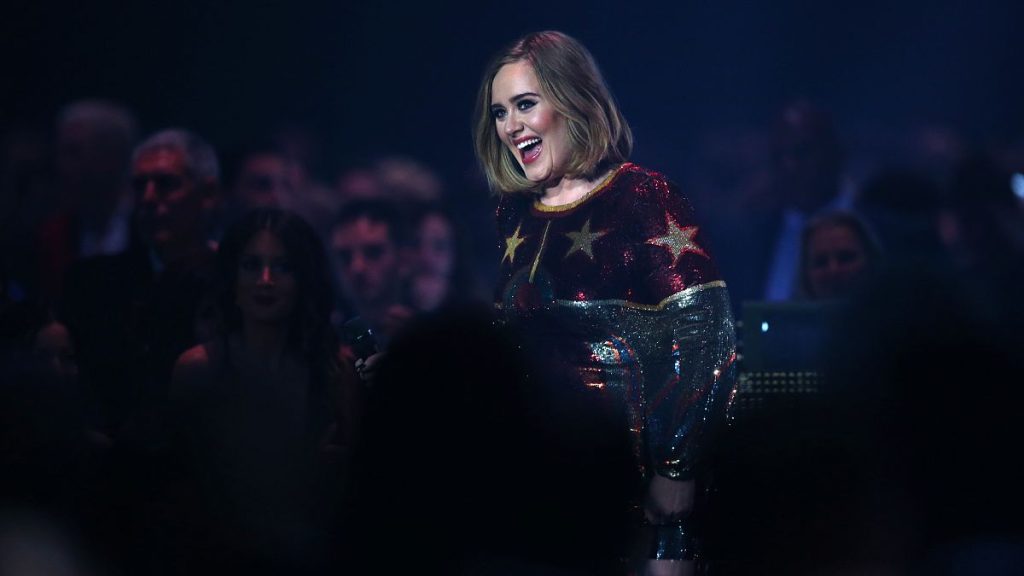The global music scene is embroiled in a legal battle that pits Grammy Award-winning artist Adele against Brazilian composer Toninho Geraes, who accuses the British singer of plagiarizing his 1995 samba composition, “Mulheres (Women)”. The controversy centers around Adele’s 2015 song, “Million Years Ago”, featured on her acclaimed album “25”. Geraes alleges that “Million Years Ago” bears striking similarities to his earlier work, specifically in its musical structure and melodic phrasing. This claim has led to a lawsuit against Adele, demanding recognition as a songwriter on “Million Years Ago”, compensation for lost royalties, and a substantial sum in moral damages, amounting to $160,000.
The legal proceedings have reached a critical juncture with a Brazilian court issuing a preliminary injunction against Sony Music and Universal Music, the major labels involved in the distribution of Adele’s music. Judge Vitctor Torres has ordered the Brazilian subsidiaries of these companies to immediately cease all forms of distribution and commercialization of “Million Years Ago” worldwide. This injunction encompasses physical and digital formats, streaming platforms, and any other means of dissemination. The court’s decision underscores the seriousness of the plagiarism allegations and signifies a potential disruption to the availability of Adele’s song on a global scale. The labels face a daily fine of $8,000 for any non-compliance with the injunction, adding significant financial pressure to resolve the dispute.
While the injunction represents a significant victory for Geraes and his legal team, the legal battle is far from over. Sony and Universal retain the right to appeal the Judge’s decision, which could potentially overturn the injunction and reinstate the availability of “Million Years Ago” on streaming services and other platforms. The appeal process could involve presenting counter-arguments challenging the plagiarism claims, disputing the scope of the injunction, and addressing the financial penalties imposed. The outcome of this appeal will be pivotal in determining the future of the lawsuit and the ultimate fate of Adele’s song.
Fredimio Trotta, Geraes’ lawyer, has hailed the injunction as a landmark decision for Brazilian music, highlighting what he perceives as a recurring issue of Brazilian compositions being appropriated without proper credit or compensation. Trotta contends that “Million Years Ago” represents a prime example of this pattern, with the song’s success allegedly built upon the unacknowledged borrowing of Geraes’ creative work. This argument aligns with a broader narrative of cultural appropriation in the music industry, where artists from less dominant cultures may face challenges in protecting their intellectual property. Trotta’s firm is actively working to enforce the injunction, notifying streaming services, radio stations, and television broadcasters worldwide of the court’s decision and the potential legal ramifications of continuing to air or distribute “Million Years Ago”.
The Geraes-Adele case underscores the complexities of copyright law in a globalized music industry. Determining the extent of musical similarity that constitutes plagiarism can be challenging, often involving expert musicological analysis to dissect melodies, harmonies, and rhythmic patterns. The case also raises questions about the international enforcement of copyright law and the potential for conflicting legal interpretations across different jurisdictions. The involvement of multinational corporations like Sony and Universal further complicates the matter, adding layers of legal representation and strategic maneuvering.
The outcome of this legal battle holds significant implications for both artists and the music industry as a whole. A ruling in favor of Geraes could set a precedent for future plagiarism cases, potentially empowering lesser-known artists to challenge established figures in the music world. Conversely, a successful appeal by Sony and Universal could reinforce the challenges faced by artists seeking to protect their work from unauthorized use, particularly in cases involving cross-cultural influences and international distribution. The Geraes-Adele case serves as a critical test case for the evolving landscape of copyright law in the digital age and highlights the ongoing struggle to balance artistic expression with the protection of intellectual property.














